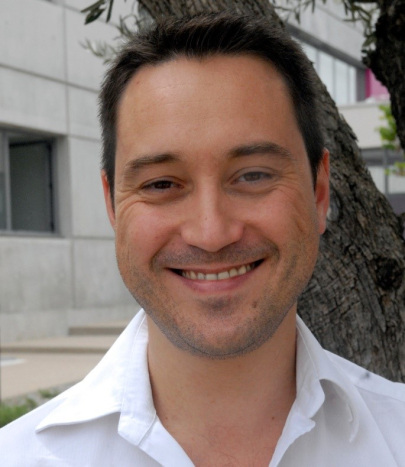Frédéric BienvenuInstitut de génomique fonctionnelle - CNRS / Inserm / Université de Montpellier
Mes recherches
My research focuses on the molecular functions of the Cyclin D1 protein which is essential for the division of healthy progenitors but also for cancer cells. By combining high throughput genomics and proteomics approaches my aim is to develop novel therapeutic strategies to fight cancer while sparing healthy tissues. After a PhD in molecular and cellular biology (2000-2004), I joined the laboratory of Peter Sicinski as a Post-doctoral fellow affiliated to the Harvard Medical School and in collaboration with the group of Rick Young from the Massachusetts Institute for Technology in Cambridge. In 2010 I was hired as CR1 by the CNRS and obtained the ATIP-Avenir support to start the "Cell Cycle Clock Genomics" team in 2011 at the IGF in Montpellier. In 2012 I discovered a novel anti-apoptotic function of Cyclin D1 in cancer cells and developed thereof several innovative tools to measure and inactivate this biomarker of cancer aggressiveness. In 2013 the SATT AxLR chose my project to start a translational research program proposing new theranostic approaches against cancer. I thus filed four patents to protect my inventions and I am now working with the CNRS Innovation arm to adapt these tools to clinical standards. My next goal is to deploy efficient custom therapeutic alternatives against cancer in collaboration with big Pharmas and clinicians of the anti-cancer center of Montpellier.
Mon projet ATIP-Avenir
Deciphering the role of D-type cyclins in the nervous system and cancer
CYCLOCK
D-type Cyclins are the activating subunits of the Cyclin Dependent Kinases 4 and 6. The assembly between D-Cyclins and the CDK4/6 enzymes triggers the phosphorylation of the Retinoblastoma protein and releases its anti-proliferative function during development. However since D-Cyclins are frequently overexpressed in human cancers, a new class of CDK4/6-specific inhibitors has been developed and approved in the clinics in 2015. Although efficient to delay the progression of the disease, these drugs cannot cure cancer patients yet. We showed that the Cyclin D1 can also regulate transcription directly at the chromatin level during retinal and cancer development. This new function promotes cell division independently of the CDK-RB axis suggesting that Cyclin D1 itself could be targeted to fight cancer more efficiently than CDK4/6 inhibition. The Cyclock project aims thus at deciphering the unknown functions of Cyclin D1 to monitor and target specifically the viability of cancer cells. The goal is in particular to understand the molecular functions of this classical cell cycle protein in non-dividing healthy post-mitotic cells, like the highly differentiated dopaminergic neurons, or in cell cycle-arrested cancer cells which resist most of the actual anti-cancer therapies. This work will therefore pave the way for the counter-intuitive specific inhibition of cell cycle regulators in quiescent cancer cells that are known to fuel the reservoir of therapy-resistant and highly metastatic malignancies.
